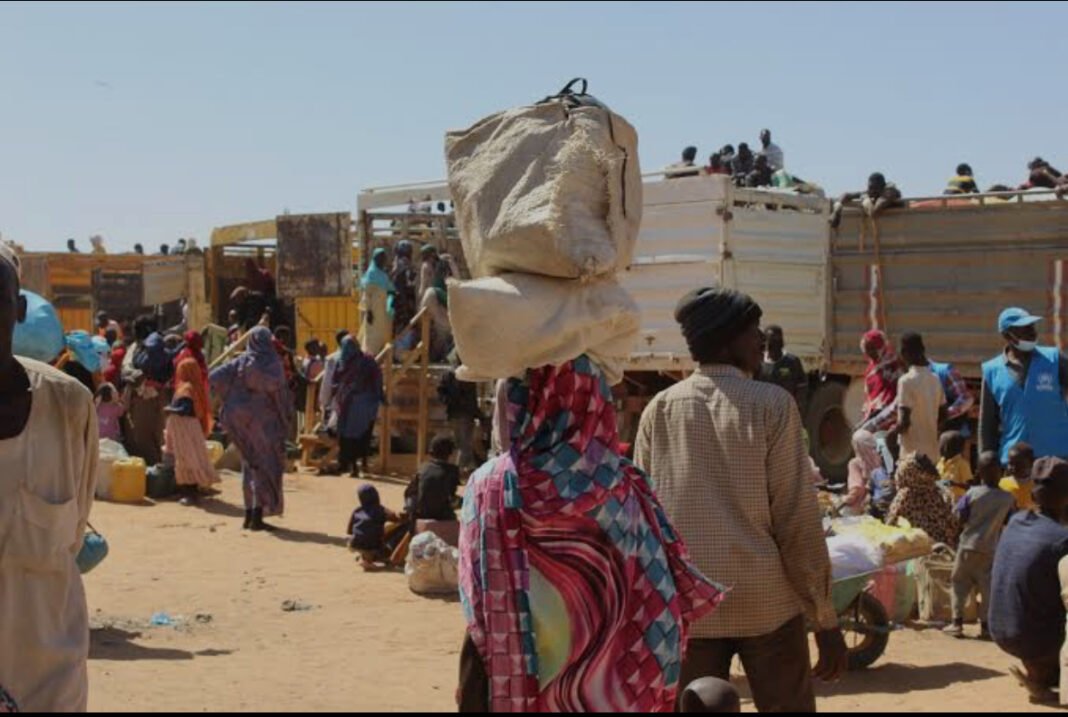KHARTOUM, (HAN) — At least 1,510 civilians have fled the city of Al-Fasher in western Sudan within the past five days, according to the International Organization for Migration (IOM). The displacement comes amid escalating clashes and worsening humanitarian conditions as rival military forces battle for control of one of the country’s most strategic cities.
In its latest report released Monday, the IOM said the civilians fled heavy fighting between the Sudanese Armed Forces (SAF) and the paramilitary Rapid Support Forces (RSF), which continue to clash for dominance in North Darfur. Al-Fasher, the last major city in the Darfur region still under government control, has become a flashpoint in the 18-month-long conflict that has devastated much of Sudan.
Local sources and humanitarian workers said families have been leaving the city under extremely dangerous conditions. Many are traveling on foot or by donkey carts toward nearby villages, carrying few belongings. The majority of those fleeing are women, children, and elderly people. Some survivors described the situation as “unbearable,” citing constant shelling, airstrikes, and shortages of food, medicine, and clean water.
“People are exhausted, terrified, and desperate,” said a humanitarian aid worker in Al-Fasher, who requested anonymity due to security concerns. “Hospitals are running out of supplies, and many families have not eaten a full meal in days.”
The United Nations has warned that the ongoing battle for Al-Fasher could trigger a large-scale humanitarian disaster. The city has served as a refuge for tens of thousands of people displaced from other parts of Darfur, and renewed fighting threatens to cut off already limited aid routes.
Humanitarian organizations report that access to the city is increasingly restricted due to road closures and insecurity. Warehouses and food storage facilities have been looted, while aid convoys face difficulties entering the area. The World Food Programme (WFP) has expressed concern that continued fighting could push more people toward starvation.
The conflict between Sudan’s army and the RSF began in April 2023 following a power struggle between army chief General Abdel Fattah al-Burhan and RSF leader Mohamed Hamdan Dagalo, known as Hemedti. What began as a dispute in Khartoum quickly spread across the country, especially in the Darfur region, reviving ethnic violence reminiscent of the early 2000s war that killed hundreds of thousands.
According to the United Nations, more than 9 million people have been displaced since the conflict began, making Sudan the world’s largest internal displacement crisis. Over 2 million people have fled to neighboring countries, including Chad, South Sudan, and Egypt, placing immense pressure on regional stability.
Aid agencies warn that unless a ceasefire is reached soon, Al-Fasher could become the scene of another humanitarian catastrophe. “The situation is spiraling out of control,” the IOM said in its statement, calling for urgent humanitarian access and international action to protect civilians trapped by the violence.





